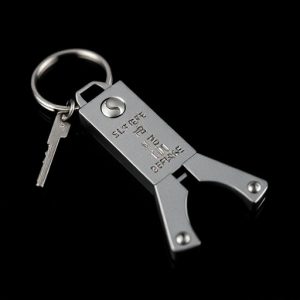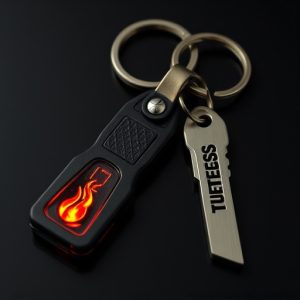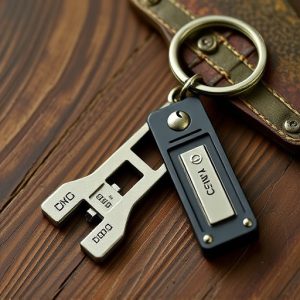Legal Requirements for Self-Defense Keychains: A Guide for Men
The legality of portable keychain defense tools for men varies significantly across US states, with…….
The legality of portable keychain defense tools for men varies significantly across US states, with regulations affecting possession, carry conditions, and self-defense tool types. Some states allow unrestricted carry of non-lethal devices like pepper spray, while others require licenses or registration. Men considering these tools must thoroughly research their state's laws to ensure compliance, understanding deployment guidelines to protect themselves without causing unnecessary harm. Keychain defense tools, designed for temporary disability or discomfort of aggressors, prioritize personal safety within legal boundaries.
“Uncover the legal landscape surrounding self-defense keychains for men, a growing trend in personal safety. This comprehensive guide navigates state-specific laws, exploring the rights and responsibilities associated with carrying these portable keychain defense tools. From understanding various legal requirements to decoding design and functionality criteria, we demystify what makes a keychain defense tool legitimate. By examining real-world scenarios, this article equips men with knowledge, ensuring they remain within legal boundaries while prioritizing their well-being.”
- Understanding Legal Frameworks: State-Specific Laws on Self-Defense Keychains
- Types of Legal Requirements and Their Impact on Ownership
- What Makes a Keychain Defense Tool Legit? Design and Functionality Considerations
- Rights vs. Responsibilities: Using Your Self-Defense Keychain Within Legal Boundaries
Understanding Legal Frameworks: State-Specific Laws on Self-Defense Keychains
In the United States, the legal framework surrounding self-defense keychain tools varies significantly from state to state. While federal laws are minimal on this subject, individual states have enacted their own regulations, often focusing on the definition of “deadly force” and the circumstances under which its use is permitted. For portable keychain defense tools designed for men (and women), understanding these legal nuances is crucial. Each state has specific rules regarding what constitutes a legally acceptable self-defense tool and the conditions under which it can be carried.
For instance, some states allow a wide range of personal protection devices, including keychains with built-in pepper spray or stun guns, while others have strict limitations on the type and power of such tools. Additionally, there are often provisions regarding the legal implications of using these devices for self-defense, including stand-your-ground laws and the duty to retreat. Men considering carrying a portable keychain defense tool should thoroughly research their state’s specific laws to ensure compliance and better protect themselves in potential situations.
Types of Legal Requirements and Their Impact on Ownership
The legality of carrying portable keychain defense tools, often favored by men for its convenience and discreetness, varies significantly across states. These tools, designed to provide personal protection in emergencies, come in various forms such as pepper spray, tasers, or knuckle dusters. Before considering ownership, understanding the legal requirements is paramount. Each state has its own set of regulations governing the possession and use of self-defense devices, with some permitting specific types while strictly restricting others.
For instance, certain states allow individuals to carry pepper spray for personal protection without a permit, while others mandate a license or registration. Some even have restrictions on the strength or capacity of the spray allowed. Similarly, tasers and knuckle dusters might be fully prohibited in some states, while others only allow them with specific permits or for professional use by authorized personnel. These legal requirements not only dictate who can own these tools but also how they can be used, emphasizing the need for men considering self-defense options to stay informed about their state’s regulations to ensure compliance and personal safety.
What Makes a Keychain Defense Tool Legit? Design and Functionality Considerations
When it comes to discussing legality, what makes a keychain defense tool legitimate is its design and functionality tailored to specific legal requirements. These portable keychain defense tools for men are designed to be compact yet effective, serving as a last resort for self-defense in situations where other means may not be available. The key factors that determine legitimacy include the tool’s ability to cause temporary disability or discomfort to an aggressor without causing serious injury. This balance is crucial and often governed by state laws.
The design should prioritize safety features, ensuring that the tool cannot easily cause harm to unintended targets or bystanders. For instance, some models feature impact zones designed to minimize damage while maximizing the effectiveness of the tool in self-defense scenarios. Additionally, materials used must be durable yet non-lethal, adhering to standards set by relevant authorities. This consideration ensures that such tools remain accessible for personal safety without crossing into illegal or dangerous territory.
Rights vs. Responsibilities: Using Your Self-Defense Keychain Within Legal Boundaries
When it comes to self-defense keychains for men, understanding your rights and responsibilities is paramount. While these portable keychain defense tools can provide a sense of security, it’s crucial to recognize their legal boundaries. In many states, carrying self-defense devices, including keychains with built-in pepper spray or stun features, is permitted as long as they meet specific size, capacity, and activation requirements. However, using them for aggressive purposes or in a manner that infringes on others’ safety can lead to legal repercussions.
Men who opt for self-defense keychains should be well-versed in their state’s laws regarding self-defense and the use of force. This includes knowing when it’s appropriate to deploy such tools, such as during an attempted assault or robbery. Remember, your rights extend to defending yourself and others, but responsibilities include ensuring that your actions do not cause unnecessary harm or violate another person’s autonomy.
When it comes to self-defense keychains for men, understanding the legal landscape is paramount. Each state has its own rules and regulations regarding these portable defense tools, so it’s essential to know your rights and responsibilities. By familiarizing yourself with the specific legal frameworks, you can ensure that your keychain remains a legitimate self-defense option while adhering to the law. Remember, responsible ownership and clear understanding of legal boundaries are crucial when carrying a self-defense keychain for personal safety.


